Victoria Ying is a critically acclaimed author and artist living in Los Angeles. She started her career in the arts by falling in love with comic books, this eventually turned into a career working in animation and graphic novels. She loves Japanese Curry, putting things in her shopping cart online and taking them out again and hanging out with her husband and cat, Bandito. Her film credits include Tangled, Wreck it Ralph, Frozen, Paperman, Big Hero 6, and Moana. She is the author and illustrator of her own series “City of Secrets and City of Illusion” through Penguin/Viking and the illustrator of the DC series “Diana Princess of the Amazons.” Her upcoming graphic novel projects her YA debut, “Hungry Ghost” and the Marvel/Scholastic “Shang-Chi and the Secret of Immortality.”
I had the opportunity to interview Victoria, which you can read below.
CW: Discussion of eating disorders
First of all, welcome to Geeks OUT. Could you tell us a little about yourself?
Hey there! I’m an author and illustrator of the new graphic novel, Hungry Ghost! I started my career in animation working at Disney on films such as Tangled, Wreck it Ralph, Frozen, Big Hero Six and Moana. I wanted to tell my own stories so I left to pursue my dream of writing. Hungry Ghost is my YA debut based on my own experiences but fictionalized.
What can you tell us about your upcoming graphic novel, Hungry Ghost? What inspired you to write this story?
I struggled with an eating disorder for nearly a decade and the thing that surprised me about media surrounding ED was just how much of it didn’t reflect my experience. As a child of immigrants surrounded by western culture, I saw the stories of worried families and emaciated young white girls and didn’t see myself in those stories. I wanted to share what the experience is like beyond the gory details of protruding bones and write a story about what it FEELS like to actually live with an ED.
Doing some research, I noticed that the term “hungry ghost” is a common concept in Buddhism and Chinese traditional religion. Was that intentionally chosen in mind when choosing the title and/or developing the story itself?
It is definitely a concept in folklore, but in my family, it was used with derision if you ever ate quickly. “You’re like a hungry ghost!”
I wanted to use the phrase because it felt appropriate for Val’s struggles. She’s hungry, not just for food, but for love as well.
How did you find yourself getting into storytelling, specifically comics? What drew you to the medium?
I had always loved comics. Comics drew me to an artistic career in the first place when I was in middle school, but once I got to college, someone told me about the tough working conditions in comics and I pivoted. I came back to the medium after working for a few years and was able to advocate for myself in the labor market. I got to work with amazing editors at First Second for this project and I couldn’t be happier with my comics experience.
Growing up, were there any books/media that inspired you as a creative and/or that you felt yourself personally reflected in? Is there anything like that now?
As a second generation child of immigrants, It’s difficult to see yourself in any media. As a kid, I saw token representation for Asians sometimes and when I would express my alienation, people would tell me to watch Chinese media. But I wasn’t Chinese either. I couldn’t speak fluently and it just made me feel even more alien. I’m glad that we live in a media environment where we’re talking about immigrants and kids of immigrants. We’re in the golden age of diaspora stories! Films such as the Oscar winning “Everything Everywhere All at Once” prove that our stories can be relatable and unique.
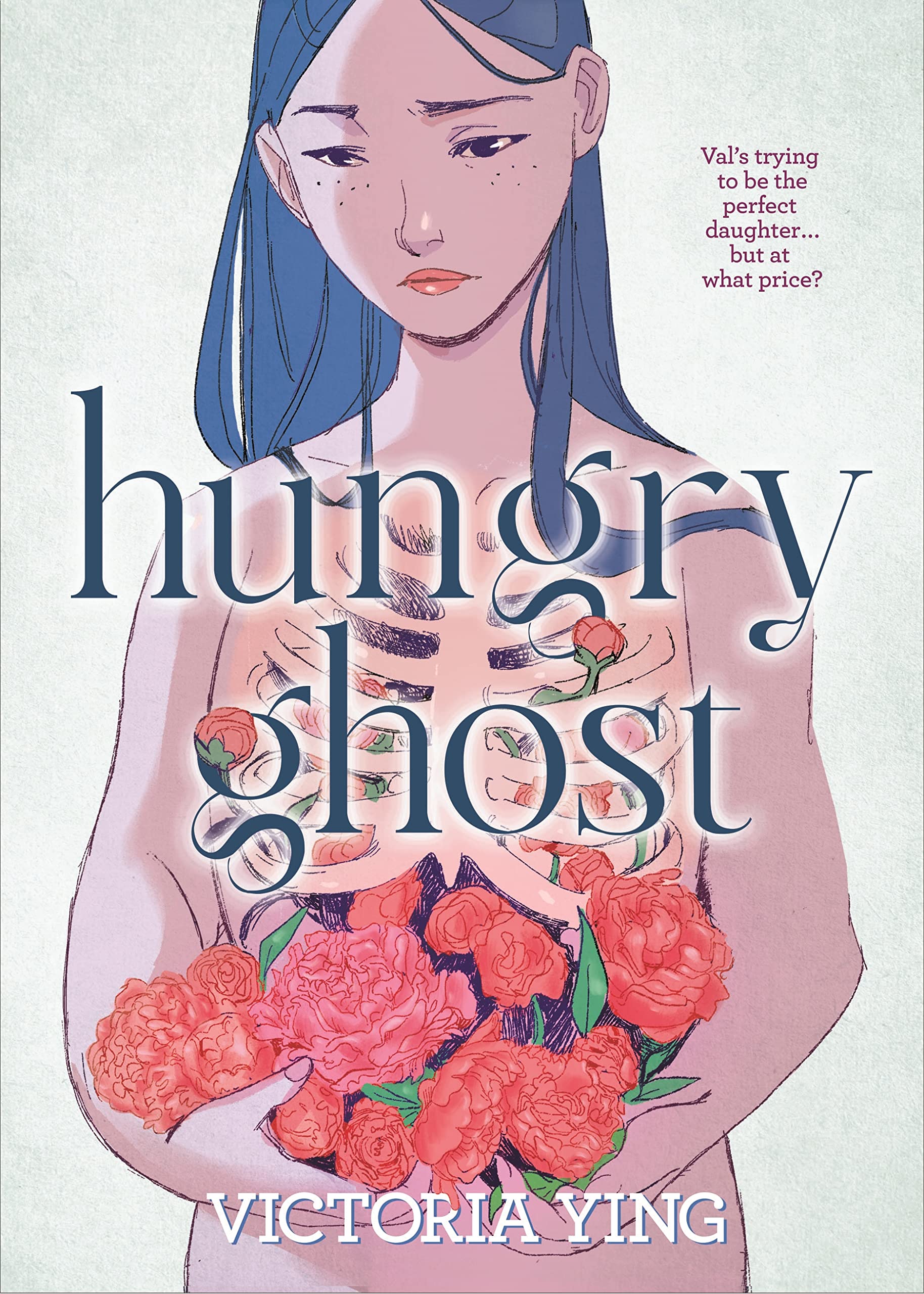
As an artist, who or what would you say are some of your greatest creative influences and/or sources of inspiration?
My inspirations are changing all the time, but I love people who follow their creative spirit. I love watching directors like Taika Waititi tell wildly different stories and yet still hold onto their special voice. Whenever I can tell that an artist is being true to their creative vision, I am most drawn to them.
For those curious about the process behind a graphic novel, how would you describe the process?
It’s like the process for making a drawing, but expanded out into a longer process. You start out with the script, get that working, and then move onto thumbnail drawings, where you draw the whole book in tiny scribbly little doodles. Once that’s working, you take those scribbles and tighten them up to something that people can actually look at. Once it’s presentable, you can add color. I worked with a fantastic colorist Lynette Wang for this book and others. Last but not least, you add in the final text.
What are some of your favorite parts of the creative process? What do you find to be some of the most frustrating/difficult?
I love the first draft of something and the inking phase. I love telling myself a story and seeing the whole thing come together. It’s fun and feels organic and natural. I also really enjoy the inking phase because I can actually let go of my storytelling brain and just get lost in making the artwork look the way I want it to. I find artistic flow most easily here.
Spoiler, regarding the main character’s mother, I really appreciated how you depicted a familial relationship that was filled with both love, but also misunderstanding and some toxicity. Would you mind speaking about that here?
I felt like a lot of parental relationships in media never rang true for me. Our parents are human. They have their own flaws, their own traumas, and to treat them as cardboard cutouts of “good parents” never really works. I was really inspired by “The OC” in high school because the parents were complicated, they had their own lives and that effected how they related to their kids. I wanted to write a mother like that. I wanted to show how ED is often passed down and how sometimes, we don’t get a fairy tale ending with the mythical apology, but we still have to move on and build a life for ourselves.
What are some things you would want readers to take away from Hungry Ghost?
It’s okay if the people you hoped to rely on can’t be there for you. You can be there for yourself and even though that’s not ideal, you can build your own support system and heal yourself.
What advice might you have to give to other aspiring creators?
Write short stories and write a lot of them. I had to learn how to tell stories with structure and catharsis and if I had only done full length stories, it would have taken me a long time to fix the mistakes. If you write short you can see the whole thing laid out in front of you and learn to be a better storyteller faster.
Besides your work as an artist, what are some things you would want readers to know about you?
I’m an elder millennial and it took me this long to have something worth saying. My path to publishing is long and winding, but I don’t regret a single moment of it because it all led me to the place that I am now.
What’s a question you haven’t been asked yet but wish you were (and the answer to that question)?
“How do you manage your time to avoid burnout?”
One of my biggest things I advocate for with young comics artists is never to schedule yourself to the max. Yes, you CAN work 7 days a week, but that can’t last and you’ll be an absolute husk of a person in a matter of months. Whenever you are figuring out how long a project will take, protect your weekends and evenings. 8 hours a day MAXIMUM. Also, remember to build in two weeks of sick time! You’re your own HR department, so be that for yourself!
Are there any projects you are working on or thinking about that you are able to discuss?
I have a book coming out with Scholastic for Marvel’s Shang-Chi on October the 6th! I was allowed to write a fun, twisty little story for this character and I can’t wait to share it.
I’m also working on a second YA contemporary about growing up on the internet and navigating inappropriate relationships.
Finally, what books/comics would you recommend to the readers of Geeks OUT?
Ooh! I just finished Ryan LaSala’s “The Honeys!” It was a fun, queer, horror romp that I can’t stop thinking about!

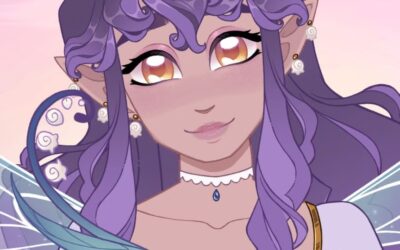
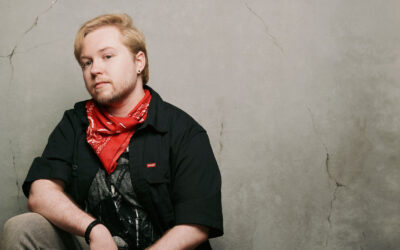
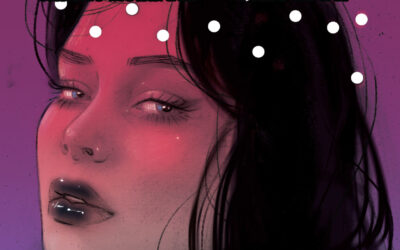
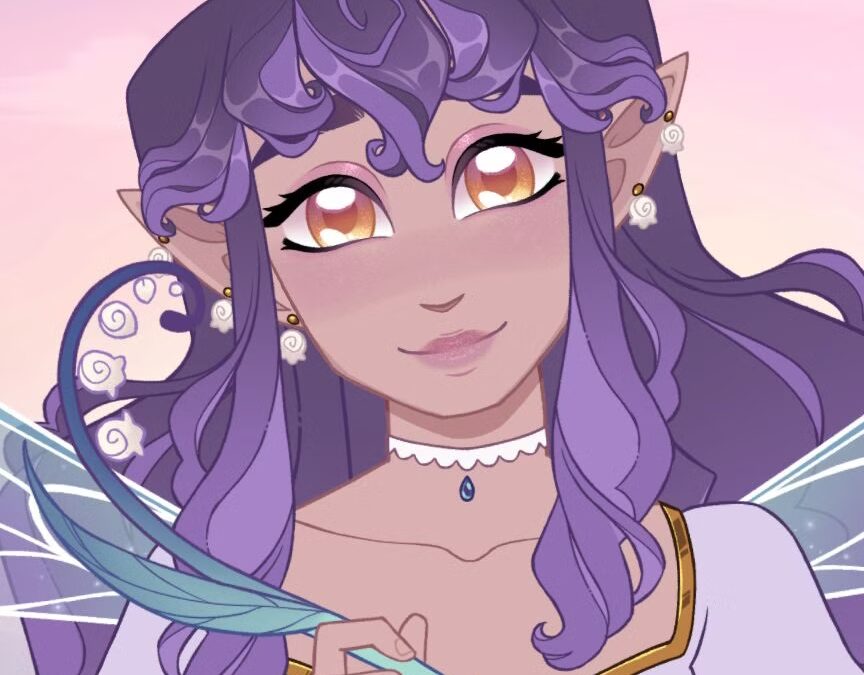
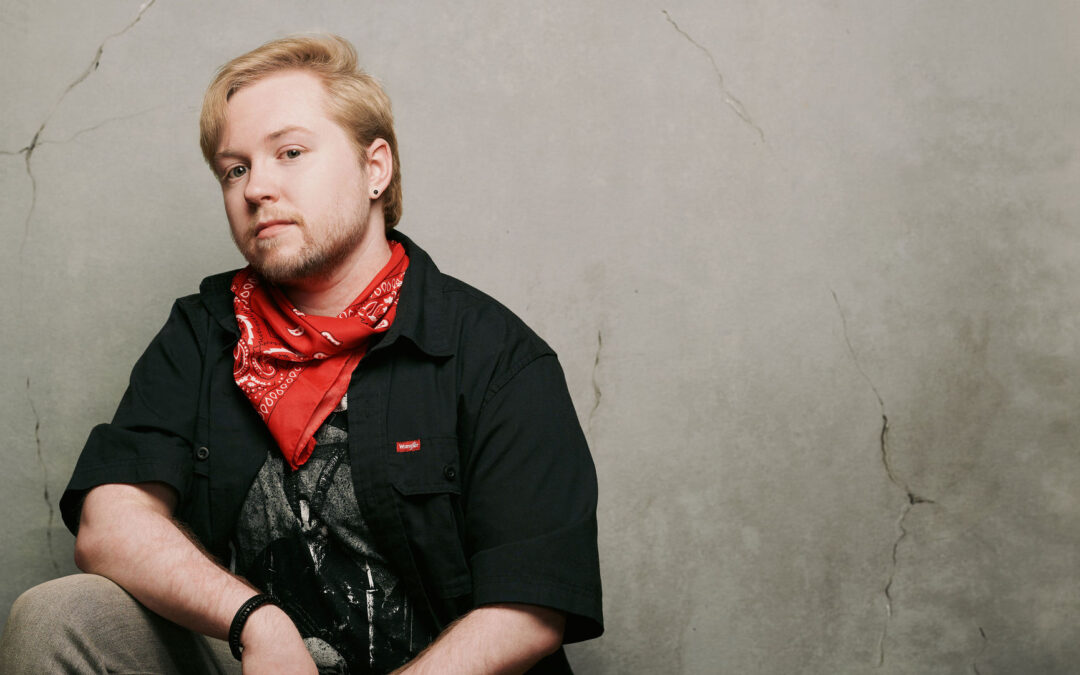
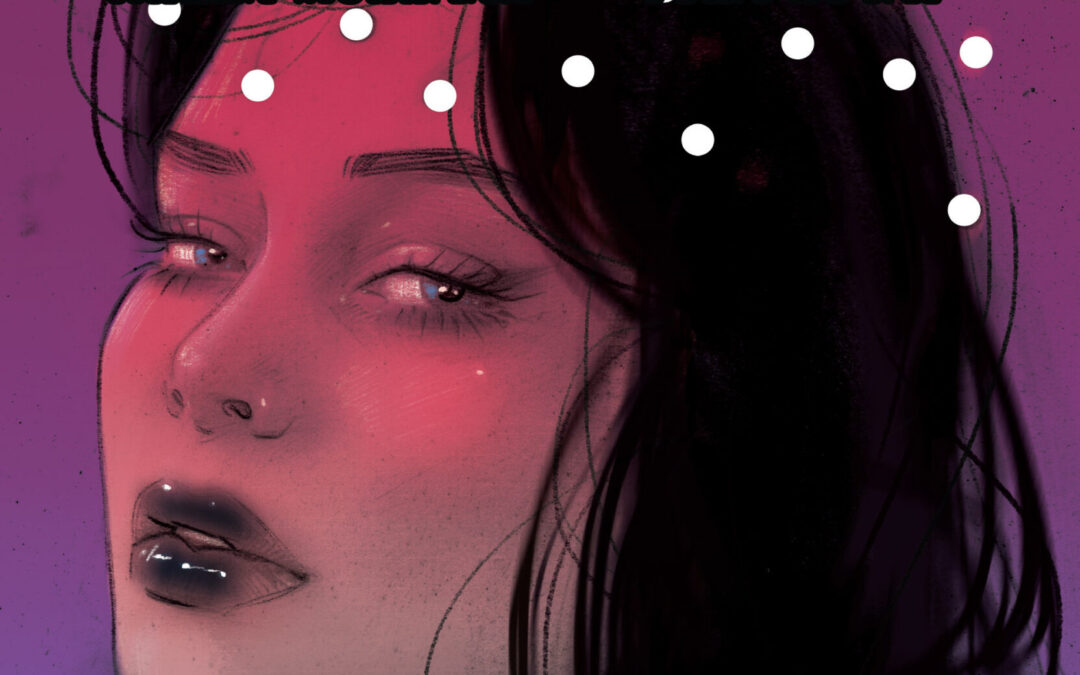
0 Comments